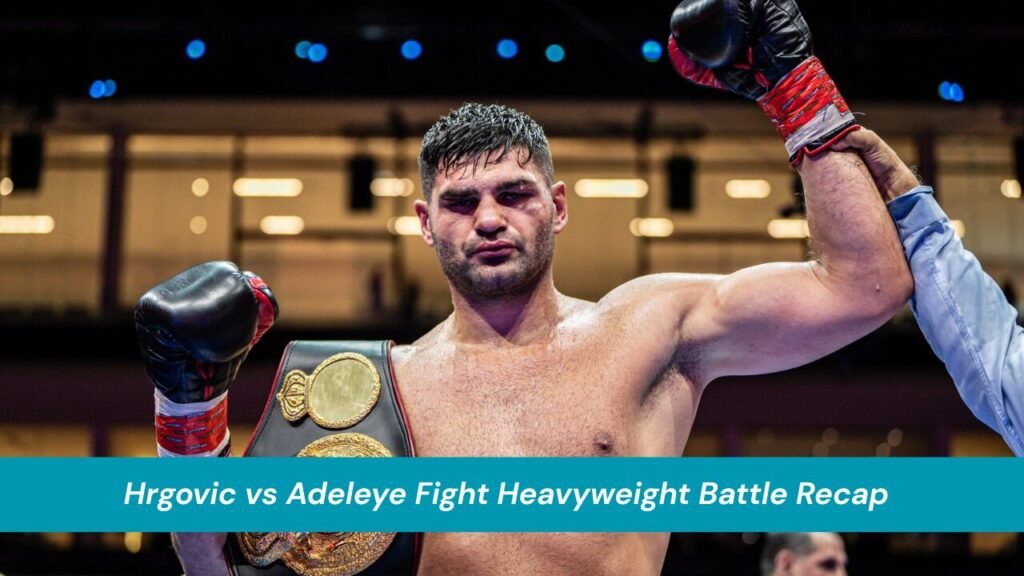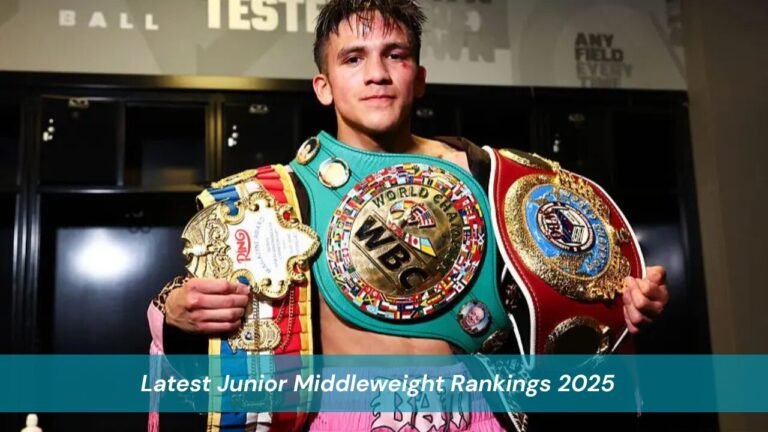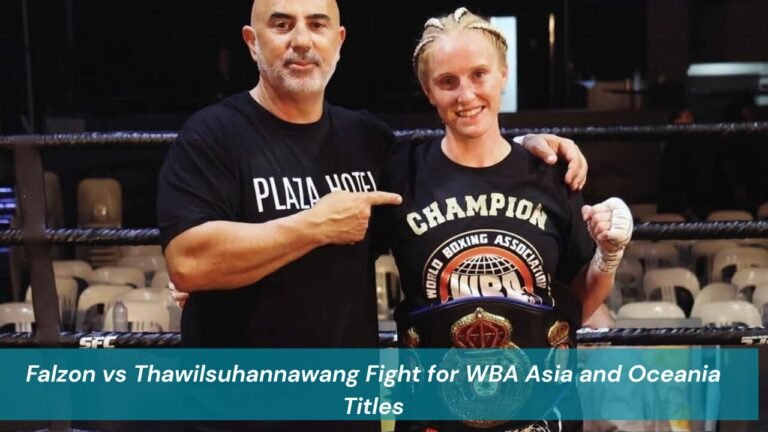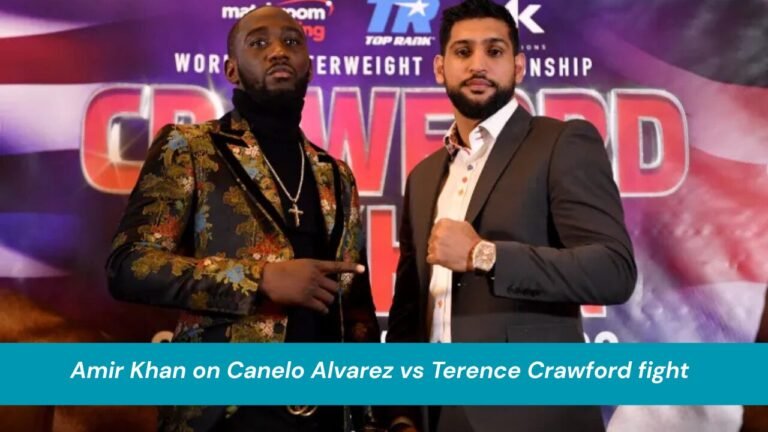In boxing, controversies don’t always come from the ring. Sometimes, the biggest debates emerge outside of it between promoters, trainers, and fighters shaping the sport’s future. That’s exactly what happened when boxing legend and Golden Boy Promotions CEO Oscar De La Hoya blasted rising Puerto Rican star Xander Zayas for allegedly “making boxing stale.”
The criticism came after Zayas, fresh off becoming the youngest active world champion, declined a proposed pay-per-view bout with Vergil Ortiz Jr. De La Hoya’s frustration spilled over publicly, sparking arguments among fans and insiders about whether Zayas is protecting his career wisely or hurting the sport by delaying marquee fights.
This clash isn’t just about two fighters it’s about what boxing needs to stay alive and whether the next generation will seize opportunities or wait until the perfect moment.
Key Takeaways
Xander Zayas became the youngest active world champion at 22, marking a historic achievement for Puerto Rican boxing.
Oscar De La Hoya criticized Zayas for declining a fight with Vergil Ortiz Jr., claiming such moves make boxing “stale.”
Zayas prioritizes strategic career growth, home-based fights, and promotional control over immediate high-risk matchups.
Boxing fans and industry insiders are divided: some support calculated career management, while others want young stars to seize big opportunities quickly
Xander Zayas The Youngest Active World Champion
At just 22 years old, Xander Zayas has already etched his name into boxing history. Born in San Juan, Puerto Rico, he turned professional at the astonishingly young age of 16 after signing with Top Rank Promotions. His journey from teenage prodigy to world champion has been carefully managed, showcasing steady progress through increasingly difficult opposition.
On July 26, 2025, at Madison Square Garden in New York City, Zayas achieved his crowning moment by defeating Jorge García Pérez to win the WBO junior middleweight title. The unanimous decision victory was hard-earned, with Zayas displaying the discipline and poise of a seasoned champion despite his youth. The win instantly made him the youngest active world champion in the sport, a milestone that catapulted him into global headlines.
For Puerto Rican boxing fans, Zayas’s triumph carried even more weight. The island has a rich history of producing legendary champions like Félix Trinidad and Miguel Cotto, and Zayas’s rise has revived excitement about a new era. His ability to draw crowds both in Puerto Rico and the United States makes him one of boxing’s brightest prospects, not only in terms of titles but also marketability.
Why De La Hoya Is Frustrated
In the eyes of Oscar De La Hoya, however, Zayas is missing a golden opportunity. Shortly after Zayas’s title win, De La Hoya publicly called him out for refusing a proposed fight against Vergil Ortiz Jr., Golden Boy’s undefeated knockout artist and one of boxing’s most dangerous young stars.
The offer, according to De La Hoya, was lucrative and straightforward: a December showdown in Las Vegas, with a 50/50 split of the pay-per-view revenue. For fans, the matchup would have been a dream fight between two undefeated young champions. For promoters, it promised significant box office appeal.
When Zayas’s camp declined, De La Hoya didn’t hold back. On Instagram, he declared that fighters like Zayas are “making boxing stale” by avoiding risky fights, contrasting the situation with his own career in which he took on legends like Julio César Chávez and Shane Mosley early on.
De La Hoya’s comments struck a nerve because they reflect a common complaint among fans: too often, boxing’s best fights take years to materialize, leaving audiences frustrated and disengaged.
Zayas’s Perspective Strategy Over Risk
From Zayas’s side, the decision wasn’t about fear, it was about strategy. Sources close to his camp revealed that he wants to headline an event in Puerto Rico before jumping into global pay-per-view clashes. By prioritizing his home base, Zayas aims to strengthen his following, boost the boxing scene on the island, and build his brand organically before risking everything against an equally dangerous opponent.
He also reportedly had concerns about promotional control. With De La Hoya’s Golden Boy pushing Ortiz and Top Rank representing Zayas, negotiations were complicated by questions about television rights, revenue splits, and who would dominate the promotional spotlight.
For Zayas, the timing of the fight may have seemed premature. He had just captured a world title and wanted to consolidate his reign before leaping into potentially career-defining matchups. His critics may call it cautious, but his supporters see it as smart business. After all, boxing history shows that careful career management often leads to bigger paydays and greater longevity.
The Clash of Styles Zayas vs. Ortiz
One reason the proposed fight generated such hype is the stark stylistic contrast between the two fighters. Zayas is a disciplined, methodical technician who relies on sharp jabs, footwork, and defense to outlast opponents. His victories often come by accumulation rather than sudden knockouts, which appeals to purists but can leave casual fans wanting more fireworks.
Vergil Ortiz Jr., by contrast, is known for his relentless aggression and knockout power. Nearly all of his victories have come by stoppage, making him one of boxing’s most feared punchers. His fan-friendly style guarantees action every time he steps in the ring.
The clash between Zayas’s calculated approach and Ortiz’s all-out offense would have been a classic “boxer vs. puncher” matchup, exactly the kind of fight that captures mainstream attention.
Why De La Hoya Called Boxing “Stale”
De La Hoya’s use of the word “stale” wasn’t random. Boxing has long faced criticism for moving too slowly in delivering big fights. Unlike mixed martial arts organizations like the UFC, where top fighters often face each other quickly, boxing’s fractured promotional landscape leads to drawn-out negotiations and delays.
Fans still remember how long it took for Floyd Mayweather and Manny Pacquiao to meet nearly five years after demand peaked. While that fight eventually broke records, it also left a sour taste for those who felt it came too late.
De La Hoya’s argument is that fighters like Zayas should seize opportunities while the spotlight is hot. He believes declining Ortiz is not just a missed opportunity for Zayas but also for the sport itself, which desperately needs young stars to generate excitement and sustain fan interest.
The Cultural Factor Puerto Rico’s Pride
What complicates the debate is the cultural weight behind Zayas’s decision. Puerto Rican boxing fans have long craved another superstar to represent the island on the world stage. By choosing to prioritize fighting in Puerto Rico, Zayas is positioning himself as not just a champion but also a cultural symbol.
For him, staging a title defense in San Juan could be more valuable than a Vegas showdown, at least in the short term. It would give his home fans a chance to see their champion live, boosting his local legacy before expanding globally. This perspective may not resonate with U.S. promoters like De La Hoya, but it holds immense significance in Puerto Rico’s boxing narrative.
Lessons from Boxing History
This situation isn’t new. Many champions have faced the same crossroads of risk versus strategy. Oscar De La Hoya himself took risks early, fighting big names that built his reputation as “The Golden Boy.” In contrast, Floyd Mayweather carefully managed his matchups, prioritizing financial control and timing over immediate challenges—yet he retired undefeated and became boxing’s highest-paid star.
Canelo Álvarez, another example, blended both approaches. He accepted tough fights but also carefully selected when and where to face opponents, eventually becoming the face of boxing worldwide.
The question for Zayas is which model he will follow. If he takes calculated steps, he may build a Mayweather-like empire. But if he delays too long, he risks frustrating fans and losing momentum.
Industry Reactions and Fan Perspectives
Reactions to the De La Hoya-Zayas controversy have been split down the middle. Some industry insiders agree with De La Hoya, insisting that boxing’s relevance depends on fighters taking risks when the public demands it. They argue that by avoiding Ortiz, Zayas missed his chance to cement himself as a global star.
Others, however, see De La Hoya’s comments as self-serving, more about promoting Ortiz than about protecting the sport. They point out that promoters often criticize fighters on rival platforms, especially when negotiations break down.
Among fans, opinions are just as divided. Hardcore boxing followers tend to support Zayas’s cautious strategy, noting that many great champions followed similar paths. Casual fans, however, echo De La Hoya’s frustration, saying they want to see the best fight the best without excuses.
What’s Next for Zayas?
Looking ahead, Zayas’s immediate focus will likely be on defending his newly-won WBO title. His next fight could very well be in Puerto Rico, fulfilling his promise to bring world championship boxing back to the island. If he dominates his mandatory challengers, the demand for a blockbuster fight with Ortiz or another elite contender will only grow.
For Ortiz, the path is less clear. Without Zayas, Golden Boy Promotions must find another marquee opponent. Still, the unfinished business between these two fighters lingers, and many believe it’s only a matter of time before circumstances push them into the same ring.
FAQs
Who is Xander Zayas?
Xander Zayas is a 22-year-old Puerto Rican boxer who became the WBO junior middleweight champion in July 2025, making him the youngest active world champion.
Why did Oscar De La Hoya criticize him?
De La Hoya accused Zayas of “making boxing stale” after the young champion turned down a proposed fight with Vergil Ortiz Jr.
What makes Zayas vs. Ortiz such a big matchup?
Their contrasting styles of Zayas’s technical discipline versus Ortiz’s knockout aggression would make for a high-stakes, fan-friendly clash.
Will the fight eventually happen?
Most analysts believe it will, especially if both fighters remain undefeated. Fan demand and business pressure usually make such fights inevitable.
Conclusion
Oscar De La Hoya’s blunt comments may have stung, but they highlight a central tension in modern boxing. Should young stars like Zayas jump immediately into dangerous fights, or should they carefully build their careers? There is no easy answer, but one thing is certain: decisions made now will shape boxing’s next era.
Xander Zayas boxing journey is just beginning. Whether he becomes a global superstar like Canelo Álvarez or a carefully protected champion will depend on the choices he and his team make in the coming years. For fans, the anticipation of what comes next is as exciting as any fight itself.




